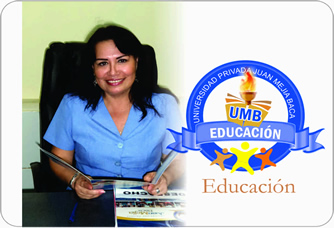 I am currently living in Chiclayo, Peru, and working at some local schools in the area. I’ve been learning so much about the culture, the people, the food (the food is so good!), and I’ve been able to talk with some amazing individuals.
I am currently living in Chiclayo, Peru, and working at some local schools in the area. I’ve been learning so much about the culture, the people, the food (the food is so good!), and I’ve been able to talk with some amazing individuals.
I have been extremely impressed by the number of women working in education here. The majority of primary school teachers are women, and there are a good percentage working at the university level as well. I sat down with Martia Vasquez, the Director of the School of Education at the private university of Juan Mejia Baca, to talk about her path as well as the state of women in business. She is an amazing person and I was so impressed by what she has accomplished in her life and the example she leads for everyone around her:
Tell me a little about yourself and what you do:
Well, I am a professional woman, and a fighter. I am continually preparing and forming myself in all areas of my life.
Where did you study and what did you study?
I studied at the National University Pedro Ruiz Gallo and I have also studied at Heart. I have two professions, I teach chemistry methodology, it was my first profession. Then I studied nursing. Apart from that I have a master’s degree in teaching and research and a doctorate in science education and a doctorate in health sciences.
What occupations have you had in your life?
Apart from all that I have studied, the first profession that I had was a secretary, a cooperative when I was 17. Then I was a professor of secondary education for 7 years. Then I worked one year as a staff nurse in a small town called Llanca Lambayeque.
Since then I have taught in a university since 1994 and in a nursing faculty and I have nearly 20 years of service. I worked there for almost six years. As a university teacher one of the most satisfying projects I had was being a research head at a central office. I’ve had plenty of opportunities to get training, and opportunities to learn for research.
And now I’m here at Juan Mejia Baca, where they have opened doors for me to apply to all who believe. I am a teacher in the area of scientific research and director of education careers. I am also in charge of the psychology department and president of the self-evaluation condition quality here at the university.
Have you always wanted to work in education?
In the beginning no, it was almost incidental. I studied nursing and really wanted to work with the health sciences. But because of education, I have had many personal and professional rewards. It has served me as a person and as a professional. It’s made me happy.
I try to be an example as a teacher. I also worry a lot about the training of future teachers.
Do the majority of women in Peru have careers? If so, what types of careers do they have?
No most don’t really have one. If we talk about the town and the coast, a large percentage of women have formal training in professions. But if we talk about the jungle, the women there have discriminate opportunities. The rural area also.
The woman is the center of home and she is who will raise the children and all that they know. Most women end up in professions that have to do with service, like education and health. Here in Peru, a large percentage of teachers are women. In preschool, primary, and secondary. Then there are psychologists, nurses, but generally the lot of women have service professions.
What has been a struggle in getting to where you are today?
I think all things in life are a challenge. The fact that I’m a woman, although I’ve had luck and I myself made strides, I’m still finding myself. But, I’ve always know I could do whatever I wanted. I’m a very lucky person, my mentors that I had were amazing. They trusted me and believed in the qualities I had.
What is your favorite part of your job now?
It gives me such satisfaction when someone comes to check in with me and have a consultation and they come out stronger. They don’t always have to be professional consultations but also personal consultations. When it comes to talking I like to listen and help people make decisions that will impact their lives.
What is one piece of advice you can give to women wanting to have a career here in Peru?
First they have to be on top of things that are happening in the world. Also, you don’t stop learning at a certain age, life is constantly learning. Know what’s going on in the world to see what new aspects in our careers we can strengthen. I have had the luck to find work faster and with with no offer from the place where I work, but that’s because I’m ready with a few changes and ready for what’s coming.
Virtual tutorials are a great way to teach yourself new skills. I look up things that don’t necessarily have to do with my area, but they are things that I am interested in. We have a lot of resources here for eco tourism so I’m learning about that industry.
This isn’t something that just women can do, everyone can. But if there’s a woman who is having difficulty, just make sure and be preparing yourself for when opportunities come along.